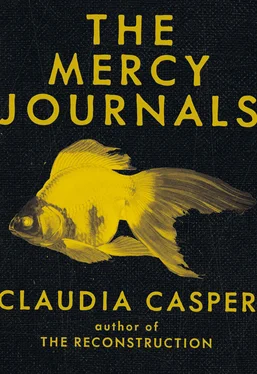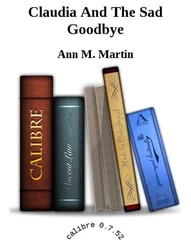I don’t want you to carry anything, I said.
What did you imagine would happen? What could you have imagined?
I couldn’t speak.
She stopped looking around. She took a bite of her food, chewed rapidly. Eyes fixed on her plate, she said, Either you want sympathy Quincy, or you want sex. I’m not giving you both.
I had no words.
She took another bite, chewed quickly. Her shoulders floated down from a hunched position and she reset them in her dancer’s posture. She lifted her head, ready for an audience.
I’m not here — on this earth, Quincy, she pointed at the floor, to look after you. My milk days, she lifted one of her breasts the way a nursing mother does to offer the nipple to a baby, are over.
A black rage exploded through me. I grabbed her wrist and squeezed it until she dropped the spoon.
I am not here — on this earth, I said between clenched teeth, to feed you. And at this particular instant I want neither sympathy nor sex, so maybe you should leave.
My heart was breaking. I looked wildly around the room for help, at the corner of sky I could see out of my window from the kitchen. It was raining hard.
A second passed. She leapt to her feet, twisted under my arm, and broke my grasp. She backed away in a crouch, arms out, panther-like, moving side-to-side, back and forth, in a state of readiness to attack. She must have known that Brazilian martial art, Capoeira. I put my hand up and dropped my head, signalling no further attack.
She backed up to the coat hook, got her coat, and put it on. She took rain boots out of her bag and a pair of socks and perched on the arm of my easy chair to pull them on. She came over, grabbed my shoulders, dug her nails into the backs of my arms, and kissed me hard, hard enough to split my lip against my teeth.
I’d risked it all for a chance to keep her. I’d had no choice. I was in a boxed canyon.
She looked at me. I was disconcerted because there was blood on her teeth from my lip. She looked at me for a long time and went out the door.
I am still trying to comprehend that look. It wasn’t goodbye. It wasn’t despair. It wasn’t hatred. There was rage, fiery rage, an intent to destroy, and maybe the merest flicker of curiosity.
The cupboard’s empty, the fridge is empty, the bottles are empty, my journal is almost full. I put my pencil down and stare at the wall. I hear a noise, a hesitant throat clearing, from near the window. The last hue of slate-grey sky darkens and wind gusts against the windowpane.
The spokesworm steps out from behind the curtain into a pool of white light. He is wearing a top hat and tails and carrying a cane with a silver top. He holds a cordless mike and gazes out into space as though over the heads of an anonymous crowd. He looks down at his feet at the end of his short threadlike legs, as though waiting for the crowd to finish their applause and get out their last coughs and whispers, then he looks up, directly at me, and starts to sing the old 1970s classic “Send in the Clowns.”
As he begins, “Isn’t it rich …,” a chorus of worms dressed as clowns shuffles into position in a pool of light floating just behind his right shoulder. They are wearing red, orange, yellow, and rainbow wigs, floppy hats with daisies in them, big red noses, big shoes, and loose onesies with pompom buttons. Some are happy, with big smiles painted over their mouths, and others are sad, with a teardrop painted on their cheeks. Once they are all assembled and in position — a process that involves quite a bit of jostling, friends trying to stand together, showboats striving for the centre of the spotlight — they stare soulfully straight ahead.
The song has a melancholy, world-weary, ironic tone and the spokesworm sings with all the rich smoothness and shabby grace it demands. As the lyrics contrast one of the lovers’ frenetic, constant motions with the other’s complete paralysis, lights come up softly on a raised platform floating behind and to the right of the chorus with a steel coffin on a viewing stand. Two worms are frantically trying to pry the lid open with crowbars.
The spokesworm looks meaningfully at me and croons the refrain, but instead of “clowns” he sings “worms”—send in the worms — which gives the song a whole new twist. He goes on to describe how one of the lovers finally decided to stop philandering and make a commitment only to find that the object of their love was no longer there, they’d moved on.
Here the clown-worms leave their pool of light and queue up by the coffin, having pried the lid open, and slowly begin to shuffle past, looking inside with exaggerated sadness. As the spokesworm sings that no one is there, the worms tilt the coffin toward me so I can see it’s empty, and I know that I was the one who was supposed to be inside.
The spokesworm continues the song’s wry lament about poor timing and missed connections, his voice like warm clear water gliding over smooth rocks, and the clown-worms commence a series of tumbling somersaults and handsprings in and out of the empty coffin like a troupe of gymnasts, reverting to their baseline carnival exuberance. The spokesworm looks down at his wristwatch as though seeking an answer there, but finding none, reprises the chorus, “send in the worms.” The spotlight on the clown-worms fades to black.
The spokesworm stands alone, still brightly illuminated, and looks over at me with wistful hopefulness, then he shrugs and walks off the stage whispering, Maybe next year.
I woke up this morning with my pillow damp from tears and the image of Ruby looking at me, crouching and swaying back and forth, back and forth. Unusually, the sun is shining, which means everyone will be indoors. If I can get myself out before the cloud returns, I can have the world to myself.
But first, this final entry. I’ve made my tea — oh, it tastes good. The last few nights I’ve been Sinbad the Sailor with my dead clamped on my shoulders ready to cut off my air lest I forget them. Today something has lifted.
I dropped the spoon with the sugar I was about to put in my tea. My hand isn’t exactly steady this morning. As I wiped the white grains of sugar into a pile and enfolded it in the cold damp cloth, something red caught my eye from under the armchair. I crawled over, lowered my cheek to the floor, and fished out a red sandal. It must’ve fallen out of her bag when she was getting her raingear out.
Her animal face looked at me, fight or flight, focused on flight but fight was right there. Her eyes weren’t connecting with me. I remembered her squeezing my arm at the flea market, letting me know she understood how things were with her, strong and weak, but she was helpless to change them.
I held her shoe in both my hands and rubbed its worn leather with my thumbs. I know how to find her. I have found my One Pure Thing, and when I find her, I will OPT out.
Someone’s pounding on my door, making it hard to concentrate on writing. Brother Leo’s hand reaching out to me. I am neither alive nor dead, drunk nor sober, neither dreaming nor fully awake. It’s a race to write these last words before his pounding breaks the catch. He is not reaching out because he wants to save me. He is reaching out because he wants something from me.
Salvation comes in many forms.
I opened my eyes. I couldn’t distinguish the morning mist from the fog. I was alert, which made me guess something external to myself had woken me. I scanned for scent, searched for a visual.
My cheek was out of the tent on the ground. The forest floor smelled of late-winter rot, not punky, but a fresh, loamy smell. The dead leaves and needles were brown and damp, darker where they had already begun turning to earth, yet the humus on the surface seemed red, a dark, brick red, aggressively absorbing the growing white light of day through the mist until it was almost fluorescent.
Читать дальше
